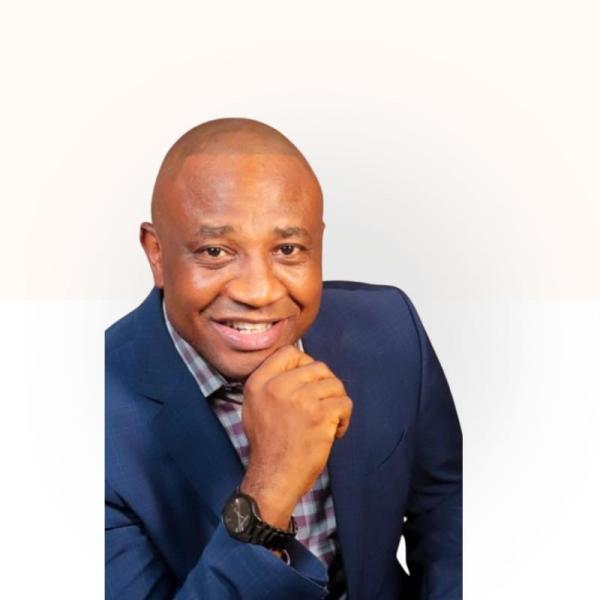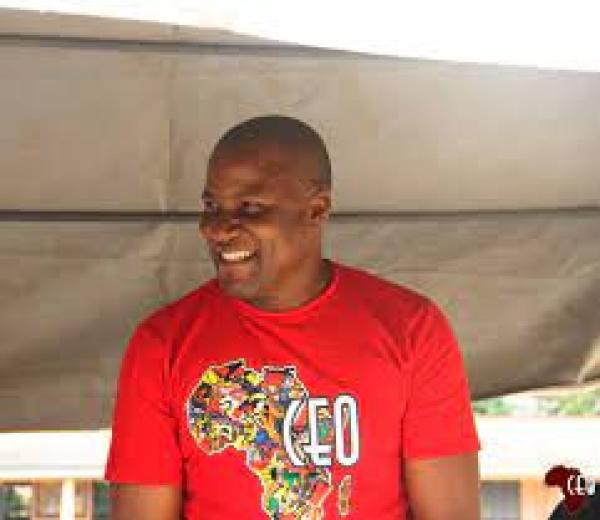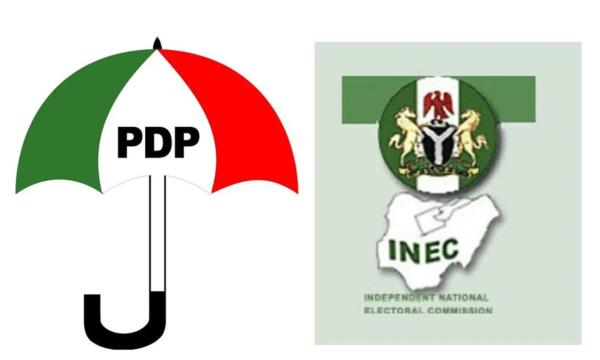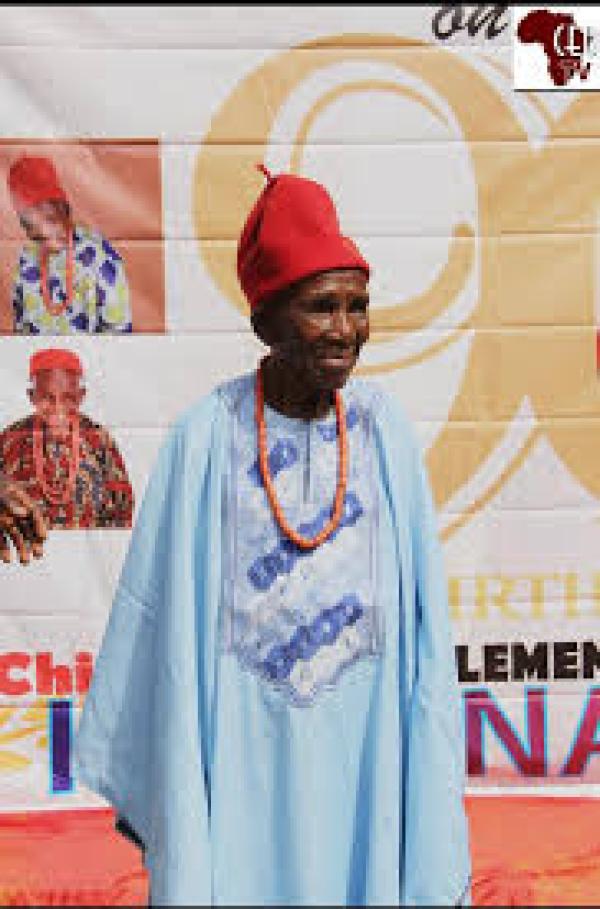
L-R: Chairman of the Corporate Forum, Otunba Funso Lawal, Minister of Agriculture, Dr.Akinwumi Adeshina, President Goodluck Jonathan, and Minister of Finance and Coordinating Minister of the Economy, Dr Ngozi Okonjo-Iweala
Fortnight ago, a group of business leaders and professionals under the aegis of Corporate Forum held an interactive session with President Goodluck Jonathan at Eko Hotelsand Suites, Victoria Island, where the president gave account of his stewardship and his plans for the future.
The recent interactive session which business leaders, under the auspices of Corporate Forum, had with President Goodluck Jonathan may have come and go, but the issues that were thrown up at the session have continued to shape the ongoing presidential election campaign. The Corporate Forum has been a bridge builder between the business community and the Presidency since the beginning of the current democratic dispensation, engaging the president seeking re-election on what he “has done and how he plans to consolidate.”
So, the 2015 edition was not the first interactive session the forum had organised. But it was unique not only because of the impressive attendance of key players in the private sector, but also because of the need for a comprehensive economic discourse and enlightenment of voters ahead of an election that promises to be one of the most keenly contested in the nation’s history. And like the forum’s Chairman, Otunba Funso Lawal, said about that evening with the President, the session was designed “to support and engender good governance.”
Track record of engagement
But to what extent has the forum helped engender and support good governance in Nigeria’s political space? Lawal argued that the forum “has been playing significant roles since 1999,” when it was set up as a platform purely “to engage former President Olusegun Obasanjo on diverse issues of national interest that would help stabilise Nigerian polity and economy at the time we were transiting from military regime to civil rule.”
He added that the forum “has been facilitating meetings between the decision makers and business communities.” At the turn of Obasanjo’s first term, Lawal said the forum held a meeting with the former president, which he said, had helped “to sustain the country’s nascent civil rule and consolidate the country’s gains of democracy. Today, Nigeria is better for it,” even though the country still faces socio-economic challenges.
After Obasanjo’s second term, Lawal said the forum had a session with former President Umaru Masa Yar’Adua in 2007 and with the incumbent President Jonathan in 2011. He, thus, said the forum’s primary objective was supporting and engendering good governance with a keen interest in the country’s socio-economic development. It is meant to provide an integrated platform for Mr. President and his cabinet members to interact with leaders of industries and to articulate how the government is going to perform in the next four years.
He said that the session was also aimed at helping “to clarify issues between the government and the invitees, hear their views and integrate such into the administration’s policies in the next dispensation. The forum undertakes its activities through a Board of Directors, which is responsible for coordinating the activities of its members.”
The forum’s chairman added that the organisation celebrates good governance and supports the aspirations of political candidates through interactive sessions with the Organised Private Sector, Professional Organisations, and opinion leaders, while it also undertakes, on a regular basis, extensive research and reviews of economic performance and governance process through its Strategy Research Group (SGR).
A President’s scorecard
Like he did in 2011, President Jonathan seized the platform to shed light on transformation, which he said, had been brought on Nigeria under his administration. He, however, admitted that most of the achievements were not adequately communicated to Nigerians, noting that the forum provided him a veritable platform “to speak on diverse achievements my administration had recorded in the last four years.” The president said his team “will look for a different approach in reaching the masses so that people can know what our administration has achieved. Our government is the most documented administration,” which he said, had distinguished itself from the administrations of his predecessors. He said he had done a lot “to help build agriculture-based economy; diversify the country’s economy and create enabling business environment among others.”
He explained the commitment of his government “to transforming Nigeria. Whatever we do is done in the best interest of the country.” He said his administration “has partnered with the private sector and critical stakeholders to move Nigeria to the next stage,” which according to him justified the drive of his administration “to create the enabling environment and build an army of young entrepreneurs though the You Win programme.”
Jonathan, also, spoke extensively on how his administration “has been fighting anti-corruption war, but not in a manner of parading corrupt officials on the television. We are fighting corruption. But it is not about jailing people. Our administration focuses more on preventive measures than punitive antidotes.” He, therefore, said his administration had been building a system of addressing corruption, effectively through prevention.
The president said: “Before we took over government, the corruption in the fertilizer area was unprecedented such that despite the billions of money that the federal government spent on fertilizers every year, it never got to the farmers that needed them most. But today, through the e-wallet system, we have been able to eradicate corruption in the fertilizer distribution and the product is now getting to the farmers.”
The president explained the giant strides, which he said his administration “has recorded in curbing corruption and fraud in the Civil Service and the Pension Scheme. The Economic and Financial Crimes Commission (EFCC) has been able to convict more people on corruption more than any other administration in the country.”
But Jonathan raised concerns on the sharp fall in the price of crude oil in the international oil market, thereby seeking the support of private sector “to see Nigeria through the troubled time.” He said since there “is fall in the oil price, we need more of the private sector partnership intervention in other sectors of the economy.” He, also, sought the cooperation of the private sector in road infrastructure while emphasizing the need “to encourage the young generation to participate and show interest in farming.”
Breaking Records
It was also an opportunity for cabinet members to reel out the achievements in some key sectors. Describing the scorecard of the government as second to none in the history of Nigeria, the Minister for Finance, Ngozi Okonjo-Iweala said the country’s economy “is one of the fastest growing in the world, at seven per cent GDP growth, with the affirmation that the UN Conference on Trade and Development has named Nigeria as the number 1 destination for investment in Africa, attracting over $8 billion in Foreign Direct Investment (FDI).”
In 2013, the minister said, 1.6 million jobs “were created directly and indirectly as a result of the federal government initiatives. The exchange rate has stabilised between N155 and N160 in the last three years. Our inflation rate is now eight per cent down from the 12.4 per cent in 2011. It is projected to be a single digit for another year. Under this administration, Nigeria’s External Reserves have reached $42.9 billion, one of the highest in our history.”
Okonjo-Iweala, also, cited the establishment of the Nigeria Sovereign Investment Authority (NSIA), which she said, managed the country’s Sovereign Wealth Fund (SWF). However controversial, the minister said the fund “has been established with three components, which are Stability Fund, Infrastructure Fund and Future Generation Fund. This will help protect the economy against future shocks and provide for future generations of Nigerians.”
Likewise, the Minister of Agriculture, Dr. Akinwunmi Adesina, said something had actually changed in the sector and that government’s efforts over the past three years under President Jonathan, which, he claimed, are paying off. He said the Jonathan administration had ended corruption of 40 years in the fertilizer procurement and distribution process, as private sector-driven approach has now replaced a system of government contracts and spurred financial inclusion for farmers.
The minister added that the launch of e-wallet, which he said, had impacted on 14.5 million farmers; restored dignity to farmers as well as improved transparency and accountability in the sector. Aside, the minister said the programme “has improved the number of seed companies from 11 in 2011 and 134 in 2014, thereby culminating in the growth of investments in fertilizer sector.”
He, also, explained what had been done “to accelerate domestic rice production; turn Nigeria away from being the 2nd largest importer in the world; close the three gaps: productivity, milling gap and competitiveness gap; rice production rose by additional several million metric tons and total milling capacity rose from 70,000 metric tons in 2011 to 800,000 metric tons,” which he said, was an increase of 1,040 per cent.
On power, the Minister of Power, Prof. Chinedu Nebo, harped on the launch of the Nigerian power sector reform roadmap in 2010, which he said, was basically designed “to address the power supply deficit in the country. The power sector is one area President Jonathan has committed to leaving an eternal legacy on the life of Nigerians,” which he said, had helped make some progress in power generation and distribution.
The minister said the roadmap “sets out a clear implementation plan of the Electricity Power Sector Reform Act (2005), as a reaffirmation of the commitment to resolve the power crises and setting the path for the power sector. Some of the improvement includes reinstatement of the Nigerian Electricity Regulatory Commission. The regulatory body was strengthened with a new chairman and commissioners sworn in for the purpose of providing appropriate regulatory functions for the electricity market in Nigeria.”
He added that the administration had unbundled the Power Holding Company of Nigeria (PHCN) into 18 successor companies, for greater efficiency and effectiveness in power generation and distribution. He said the president had created the Nigerian Bulk Electricity Trading (NBET) Plc, which is also known as the Bulk Trader in August 2011.
Already, the minister said the requisite environment for private sector investment in the Nigerian power sector “has been created by establishing a credit-worthy off-taker of power, NBET Plc., which he said, provided confidence to the power generating companies that they will be paid for power produced. The Jonathan administration has launched the Energy Efficiency and Energy Conservation Lighting Scheme.
“This is to promote and encourage the use of energy efficient bulbs and lighting systems in order to create an energy conservation culture. The Federal Government has entered into a MoU with worldwide leaders in the power sector, General Electric. The MoU stipulates that General Electric will invest up to 15 per cent equity in power projects in the country, summing up to 10,00MW capacity by the year 2020,” Nebo explained.
Beyond Reforms
By their accounts, the ministers have really justified why Jonathan deserved re-election, which earned him the endorsement of business leaders. But Nigerians “have not known the feat the president has attained.” At this instance, the Minister of Petroleum, Mrs. Diezani Alison-Madueke, said reforms “are always difficult to establish due to the inherent change management aspect and, of course, resistance pushback from stakeholders.”
Likewise, she acknowledged that the journey “to transformation is often an uphill undertaking,” which she said, required the joint efforts of all stakeholders “to succeed. I am confident that the Nigerian Oil and Gas industry possesses the tenacity and courage to overcome the obstacles that I have mentioned today. I, therefore, urge all the critical stakeholders to join hands with us to get Nigeria to the desired destination.”
At the end of the interactive session, not a few believe it was an exciting evening with the President and an opportunity for him to give his stewardship in the economic sector.





















